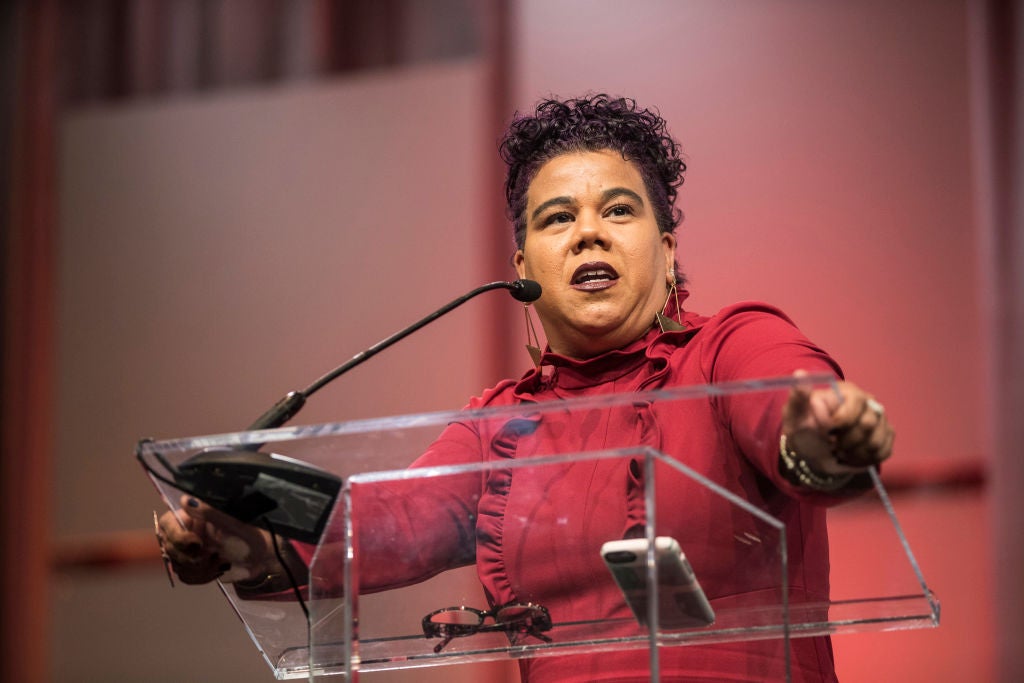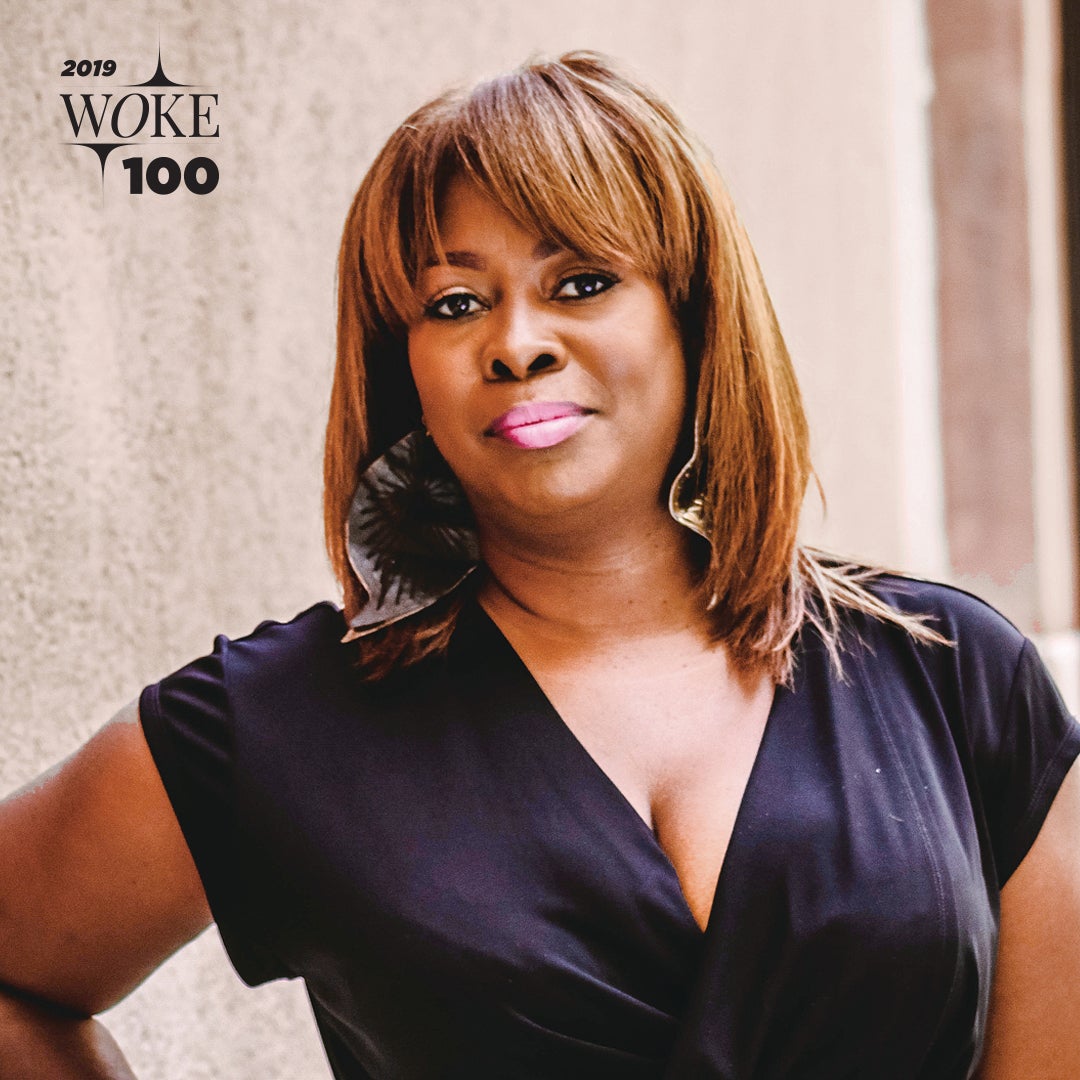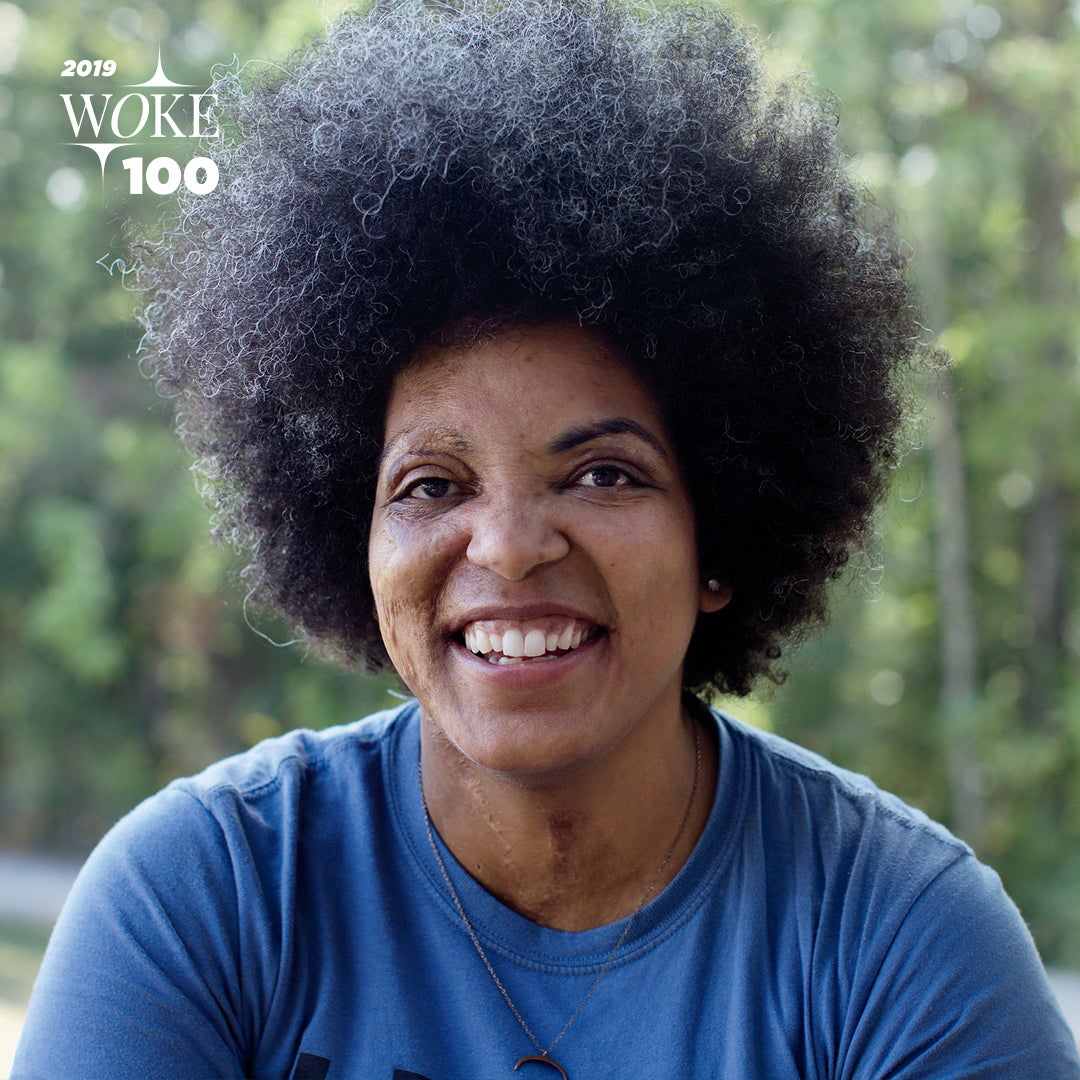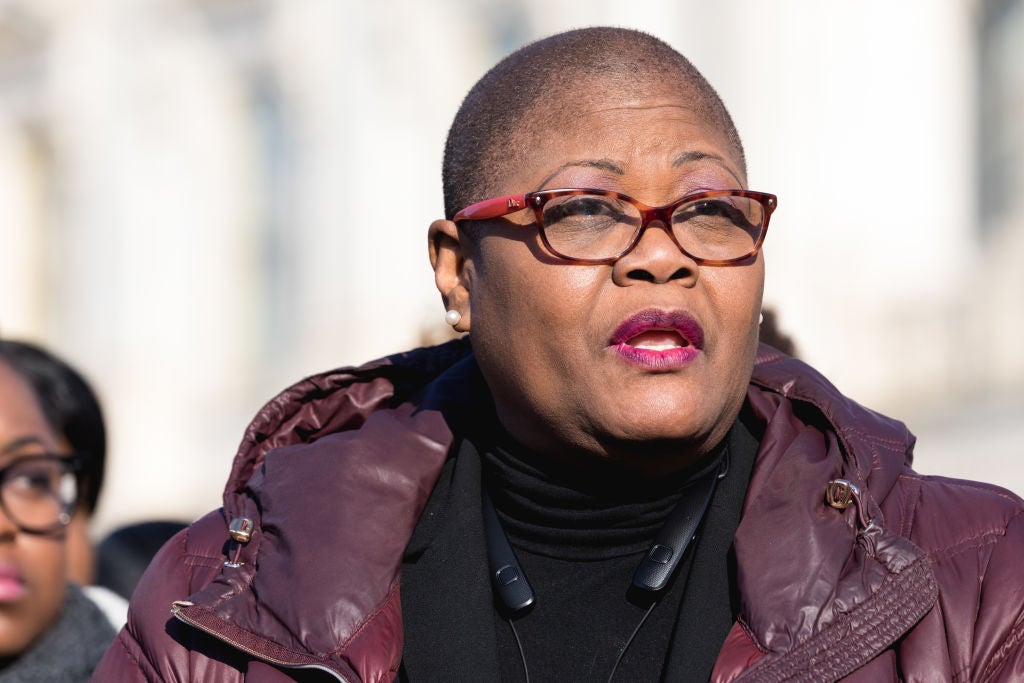When former state Rep. Stacey Abrams declared in a recent interview that not only would a Black woman be elected president of the United States in the next twenty years, but that the Black woman elected would be her, it was difficult not to recall the prediction of another young, southern leader from the state of Georgia who, fifty-six years ago—while publicly dismissing the idea of running for president himself—said that he believed this nation would elect a Black president in twenty-five years or less.
Dr. Martin Luther King, Jr. stated his belief in that seismic milestone during a 1964 BBC interview. And he did not hesitate to say it again almost two and half years later.
“There are many Negroes who are capable this day, and were capable yesterday and day before yesterday and many days in the past,” King said during a press conference on April 25, 1967, at Ebenezer Baptist Church in Atlanta. “But because of prejudices and narrow-mindedness, Negroes have been held out of the political arena and certainly held out of the presidency. But I do think that the day will come in the not-too-distant future when the Negro vote itself will be powerful enough to be a coalition with liberals and the white community and thereby elect a Negro president of the United States.”
A young senator from Chicago named Barack Obama would make King’s vision a reality in 2008, but it’s important that we get the language right today: “All the Blacks aren’t men.”
The 2020 election cycle has been a beast of a thing, reopening and infecting wounds from 2016 that never healed. California Sen. Kamala Harris’ campaign is in the rearview after it imploded in December, almost two months to the day of the botched and hotly contest Iowa caucuses. A wounded Democratic Party has pushed ferociously to the center, joining Republicans in attacking the Democratic socialism of Sen. Bernie Sanders and the center-left politics of Sen. Elizabeth Warren—but “all the women aren’t white,” either. Gatekeepers know that Black women are the backbone of the Democratic Party, just as we are the backbone of this nation, even when our backs are breaking.
As the 2019 ESSENCE/Black Women’s Roundtable Power of the Sister Vote Survey found, Black women’s confidence in the Democratic Party, which has fallen in recent years, remains stagnant. Overall, 73% of Black women, which was the same as in 2018, identified Democrats as the party that best represents their issues, however 23.6% identified as Independents or non-affiliated and 0.01% as Republican. In contrast, only 45% of Black women 25-35 agreed that the Democratic Party best represented their interests, with nearly one-third indicating that no party represents them.
It is clear that the Party that positions itself within this political duopoly as the most viable alternative to the Republican Party doesn’t just need Black women’s participation to survive; it needs Black women’s leadership. And, to that end, Black women are at the helm of several top-tier presidential campaigns; but, when will a Black woman be president of the United States? More importantly, what would it truly mean if/when a Black woman is elected to lead an inherently violent system?
In 2016, Black Mississippi author Kiese Laymon wrote in a searing, satirical piece for the Guardian: “I want my daughter – who will have to be a devout Christian to be a viable Black American presidential candidate – to never once self-critically call her foreign or domestic policy “radical Christian terrorism” while telling the country that “radical Islamic terrorists” and illegal immigration are a bigger threat to justice than housing segregation, abysmal funding for public education and a massive racial wealth gap that disproportionately affects Black women. I want her to say nothing about the engineered lack of healthy choices facing both Palestinians and poor black children in Mississippi.”
What Laymon is saying—and I agree—is that his Black daughter, any of our Black daughters, would have to be monsters in the images of the white men before them to lead this nation as it currently exists. As I’ve written previously, the politics of inclusion often masquerades as collective progress and the diversification of white supremacy is necessary for its survival. A Black woman’s face on the same old racist, patriarchal political system that continues in both insidious and blatant ways to disenfranchise, discriminate against, and target Black and Indigenous people of color is a dishonest progress at best—and a malicious one at its core.
Still, for a Black woman to not ever be elected U.S. president is to say that there has never been one qualified to do so—which we all know is a lie. It is saying that the revolving door of violent white men who occupy 1600 Pennsylvania Ave. is all we can ever hope for, with an oratorically gifted Black man who proudly utters words such as, “I’m not the president of Black America; I’m the president of all America” occasionally thrown in for good measure. We deserve more. We deserve better.
Abrams, the would-be first Black woman governor in the U.S.—if rapacious voter suppression hadn’t proved to be a white supremacist firewall—may have stretched speculation surrounding her political ambitions almost to the breaking point. Still, the enthusiasm surrounding her potential candidacy has not waned. There is not only a hopeful energy that the nation is finally ready for a Black woman to hold the highest political office in the land, but focused grassroots efforts across the country to ensure that it happens.
After Shirley Chisholm, the first Black woman elected to serve in the U.S. Congress (1968) and the first Black woman to seek a major political party’s nomination for president of the United States (1972), could this country finally be ready?
After Georgia Rep. Cynthia McKinney and veteran organizer and scholar Rosa Clemente who, together for the Green Party in 2008, formed the first Black woman presidential ticket in U.S. history, is the nation finally ready?
“My belief is that in this two-party corporate duopoly, we will not see another Black president, man, woman, or non-gender conforming person,” Clemente tells ESSENCE. “The only way we would ever see a Black woman become President would be to abolish the electoral college and adhere to the popular vote. Citizens United has to be repealed, as well, and elections should be publicly funded.
“Even with this we would need to boost voter turnout in this country to at least 75%,” Clemente continued. “The work beforehand to undo and smash patriarchy is paramount. In 2020 I still believe that a proportion of the male population would never vote for a woman, ever. I hope that my analysis is incorrect and that I do see this happen in my lifetime or at least in my daughter’s.”

LaTosha Brown, co-founder of Black Voters Matter Fund, a power building southern based civic engagement organization that played an instrumental role in the 2017 Alabama U.S. Senate race, and an Institute Of Politics Fellow at Kennedy School at Harvard University, agrees.
“Ironically, I believe that we are closer than ever to electing a Black woman as president, Brown tells ESSENCE. “In this Trump Era, it appears that white patriarchy is winning, but, in fact, it’s grasping for the last bit of air to hold to power.
“Old systems are breaking down and new systems will have to take its place,” Brown continued. “As the fragility of American democracy is being exposed we are witnessing the rise of bold fearless Black women political leaders like Stacey Abrams, Rep. Ayanna Pressley (D-Mass) and Rep. Val Demings (D-Florida). We have the numbers in this country to elect a Black woman as President. I also think we have the will of the people.”
According to Brown, combatting voter suppression, which will, subsequently, increase voter registration and turnout, is key to dismantling structural barriers like racism and sexism within the political parties and mainstream media, as well as among political donors.

“In order to get a different result we have to use different approaches. In order to overcome the structural barriers, we must do the work differently for electing a Black woman,” Brown explains. “It has to be a people centered campaign that gets people to shift their thinking from the traditional white male dominant leadership model. We must demand campaign finance reform, organize Black voters, and most importantly build a new progressive multi-generational, multi-cultural coalition that envisions a more just and inclusive America.”
Ash-Lee Woodard Henderson, Co-Executive Director of the Highlander Research & Education Center, aligns with Brown’s analysis.
“I believe that we can and will see a Black woman president in my lifetime,” Henderson tells ESSENCE. “The only thing that keeps us from it is the notion, held by white supremacists, misogynists, and anyone in establishment politics that would continue to silence Black women for the sake of consolidating their own wealth and power, that it is impossible. That Black women aren’t viable candidates. That our people won’t vote for them.
“None of this is true,” the veteran organizer and civil rights leader continues. “Black women can win elections. Black women can run amazingly radical and transformative campaigns. Black women can and should lead. Trust Black women.”

For Melanie Campbell, National Convener for the Black Women’s Roundtable, the evidence of viability in the 2020 election gives her hope for the near future of Black women in politics, and she used Harris’ campaign as an example.
“The rules of the road for the Democratic Party made it hard for Kamala Harris to stay in this race, but she was able to be on that stage and command it,” Campbell tells ESSENCE. “Her campaign moved us much closer; it made viability visible and not impossible for a Black woman.
“It’s not hyperbole to say that Jesse Jackson changed the game and that he laid the groundwork for Barack Obama to run,” Campbell continued. “Harris may have had issues with her campaign, but being viable was not one of them.”

Campbell’s analysis raises the question: Is the United States of America viable for a Black woman president?
In 1977, the Combahee River Collective, a radical Black feminist organization named after Harriet Tubman’s 1863 raid on the Combahee River in South Carolina, wrote a statement that read, in part, “If Black women were free, it would mean that everyone else would have to be free since our freedom would necessitate the destruction of all systems of oppression.”
Perhaps a Black woman will never be president of the United States as it exists now; because, when we’re talking about Black women leading, we’re talking about transformation. We’re talking about justice. We’re talking about a new way of being in community with and of service to the world and the earth. We’re talking about an existence wherein Black women don’t have to be perfect. A world where we can mess up and get back up without the weight of everyone’s heightened expectations and standards on our backs.
We’re really talking about freedom—and freedom can never consist of an electoral project alone. Yes, old systems must be dismantled and replaced with new systems. Reimagining must live alongside restructuring. It could never and should never be a Black woman’s job to save a nation from destroying itself, nor should we expect a Black woman president to, somehow, differently lead a white settler colonial project and come out unscathed.
Perhaps, Abrams is right. Perhaps, by 2040, she will be the first. Even if she isn’t, though, may those of us who believe in justice, who believe that new worlds are possible, continue the work of creating a nation worthy of a Black woman’s leadership. And when that day comes, may we engage her in principled struggle, secure in and committed to the truth that all power belongs to the people.
